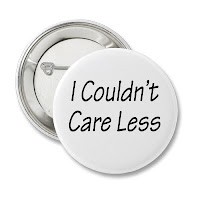bullying and sharenting
I continue to think about sharenting (parents who blog, tweet and post pictures about all aspects of their children’s lives without regard for the their children’s privacy – see previous post). And at the moment I’m thinking about the potential link between sharenting and bullying, especially with today’s launch of new anti-bullying campaign by the Friend Movement.
ERASE Bullying defines bulling as "a pattern of unwelcome or aggressive behaviour, often with the goal of making others uncomfortable, scared or hurt." It’s almost always used as a way of having control or power over their target, and it is often based on another person’s appearance, culture, race, religion, ethnicity, sexual orientation or gender identity.”
The Friend Movement wants to spread the message about friendship and encourage folks to be friends by taking a stand against bullying and by not practicing bullying behaviour.
While most parents don’t blog about their children for the purpose of bullying, which typically involves subtle methods of coercion such as intimidation, I can’t help but wonder if a parent who commonly has more power and status than their child is not at risk of crossing the boundary when they expose parts of a child’s private life without the informed consent of that child.
And here’s the connection. Like most sit coms, comedic shows or jokes, there may be an element in sharenting that exposes another person’s vulnerability for the purpose of notoriety on behalf of the joker/story teller. Without intending to cause embarrassment, shame, feelings of discomfort or hurt, parents who disclose personal information or interpretations of children’s lives through blogging may be bullying their children. Like tickling, which often begins and is seen to be a bit of fun but can easily move into over stimulation and a power struggle between the tickler and the person being tickled as to when it will stop, blogging about the details of the lives of children without their permission can also cross that boundary.
I understand friendship to be “a distinctively personal relationship that is grounded in a concern on the part of each friend for the welfare of the other”. Should this sentiment and practice not be central to parents at all times in relation to their children, and therefore also of parents who are blogging or sharing information through social media about their children?
I certainly think so.
ERASE Bullying defines bulling as "a pattern of unwelcome or aggressive behaviour, often with the goal of making others uncomfortable, scared or hurt." It’s almost always used as a way of having control or power over their target, and it is often based on another person’s appearance, culture, race, religion, ethnicity, sexual orientation or gender identity.”
The Friend Movement wants to spread the message about friendship and encourage folks to be friends by taking a stand against bullying and by not practicing bullying behaviour.
While most parents don’t blog about their children for the purpose of bullying, which typically involves subtle methods of coercion such as intimidation, I can’t help but wonder if a parent who commonly has more power and status than their child is not at risk of crossing the boundary when they expose parts of a child’s private life without the informed consent of that child.
And here’s the connection. Like most sit coms, comedic shows or jokes, there may be an element in sharenting that exposes another person’s vulnerability for the purpose of notoriety on behalf of the joker/story teller. Without intending to cause embarrassment, shame, feelings of discomfort or hurt, parents who disclose personal information or interpretations of children’s lives through blogging may be bullying their children. Like tickling, which often begins and is seen to be a bit of fun but can easily move into over stimulation and a power struggle between the tickler and the person being tickled as to when it will stop, blogging about the details of the lives of children without their permission can also cross that boundary.
I understand friendship to be “a distinctively personal relationship that is grounded in a concern on the part of each friend for the welfare of the other”. Should this sentiment and practice not be central to parents at all times in relation to their children, and therefore also of parents who are blogging or sharing information through social media about their children?
I certainly think so.



Comments
Post a Comment